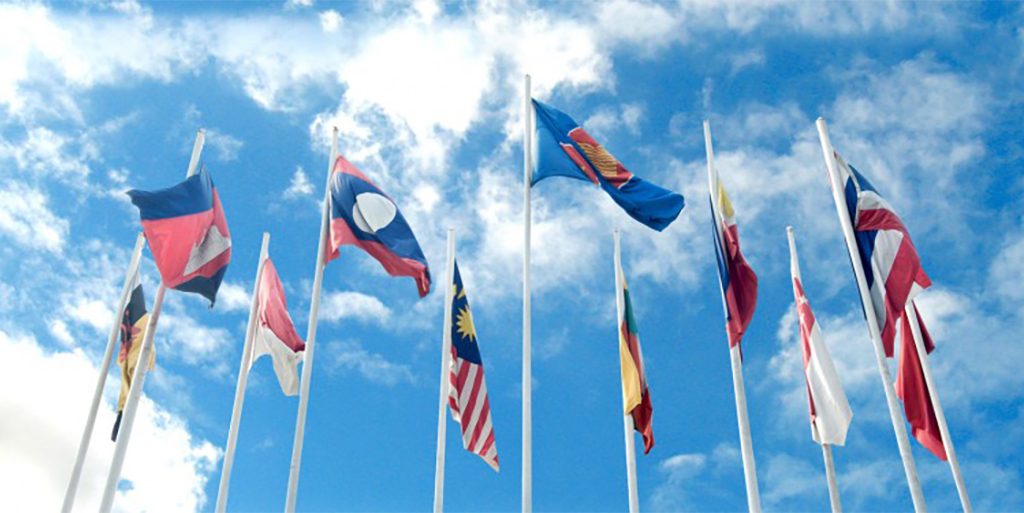Nicholas Farrelly and Kishore Mahbubani on the organisation’s past, present and future.
Next year the 10-member Association of Southeast Asian Nations (ASEAN) turns 50.
In its almost five decades the regional organisation has achieved much, not least peace and stability in a socially, culturally and a politically dynamic and sprawling part of the globe.
On the other hand, critics would argue it is a talk shop lacking in substance on substantial issues.
Today ASEAN is presented with major opportunities and key challenges — including deeper economic integration as well as increased rivalry between China and the United States. Some commentators are even concerned that territorial disputes in the South China Sea could tear ASEAN apart.
In this video, recorded on the sidelines of the Crawford Australian Leadership Forum, New Mandala co-founder Dr Nicholas Farrelly discusses ASEAN’s future and the central role of Singapore in the region with Singaporean foreign policy expert Kishore Mahbubani.
Watch the full interview in the player below.
Interview filmed and produced by Jamie Kidston and Jack Fox, ANU TV.
 Facebook
Facebook  Twitter
Twitter  Soundcloud
Soundcloud  Youtube
Youtube  Rss
Rss 